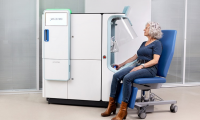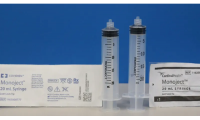-
Cipla and Glenmark initiate recall of certain products in the US
- Source: drugdu
- 124
- May 8, 2024
-
Henlius Dual HER2 Blockade Therapy Receives Phase 3 MRCT IND Approval from U.S. FDA
- Source: drugdu
- 70
- May 8, 2024
-
Study finds mechanical changes in tumour tissue offer new insights for cancer research
- Source: drugdu
- 103
- May 6, 2024
-
BigHat Biosciences partners with Janssen Biotech
- Source: drugdu
- 105
- May 5, 2024
-
Exploring molecular landscapes of cancer in Hispanic/Latin American patients
- Source: drugdu
- 99
- May 5, 2024
-
PharmaLink partners with Recall Results on safety of drugs
- Source: drugdu
- 121
- May 5, 2024
-
Robotic Blood Drawing Device to Revolutionize Sample Collection for Diagnostic Testing
- Source: https://www.labmedica.com/pathology/articles/294801059/robotic-blood-drawing-device-to-revolutionize-sample-collection-for-diagnostic-testing.html
- 147
- May 4, 2024
-
Drug Licensed from Sanofi Becomes First FDA-Approved Therapy for Ultra-Rare Primary Immunodeficiency
- Source: https://medcitynews.com/author/fvinluan/
- 88
- May 4, 2024
-
Cardinal receives FDA warning letter over unapproved syringes
- Source: https://www.medtechdive.com/news/cardinal-warning-letter-unapproved-syringes/714934/
- 91
- May 4, 2024
-
Enhanced Rapid Syndromic Molecular Diagnostic Solution Detects Broad Range of Infectious Diseases
- Source: https://www.labmedica.com/microbiology/articles/294801045/enhanced-rapid-syndromic-molecular-diagnostic-solution-detects-broad-range-of-infectious-diseases.html
- 91
- May 4, 2024
your submission has already been received.
OK
Subscribe
Please enter a valid Email address!
Submit
The most relevant industry news & insight will be sent to you every two weeks.













